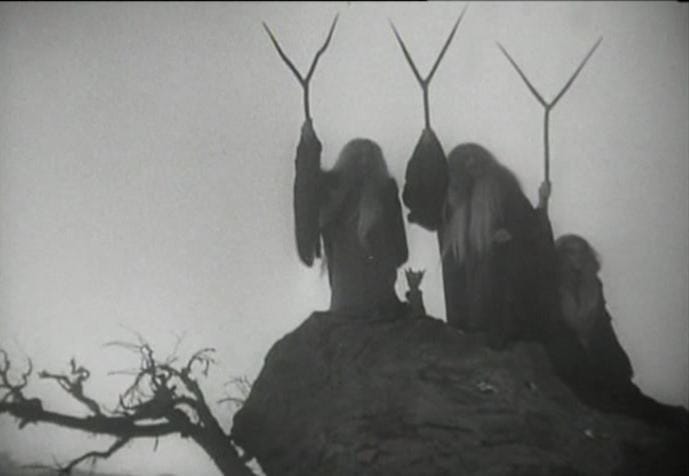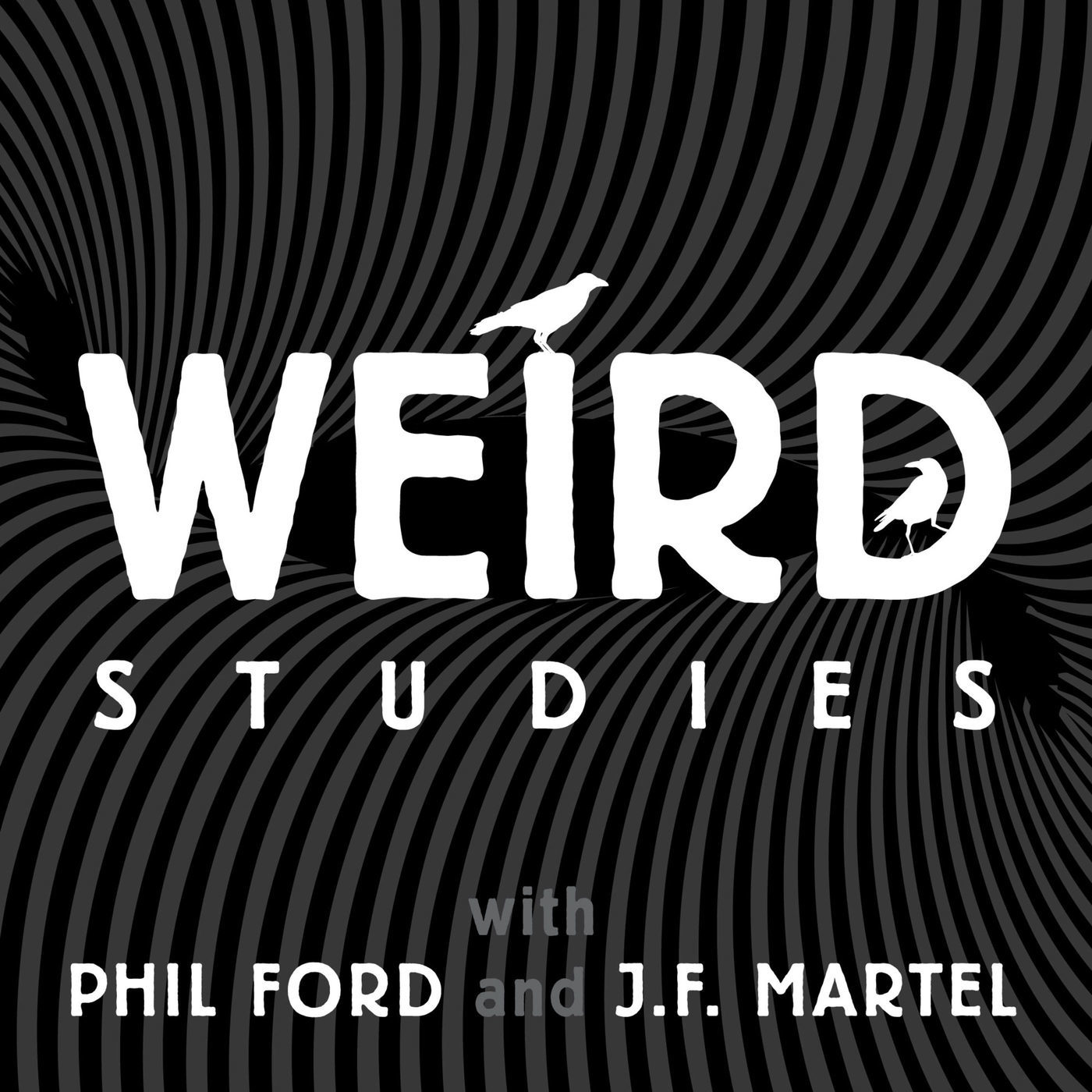Defining the weird
In which I revisit my obsession with the concept of Weird having found a useful working definition.

In 2020 I wrote a review of the first issue of Weird Walk magazine and used it as an excuse to scratch an itch I'd had for a while about the rise of things that are not only a bit weird but which explicitly call themselves "weird". This itch properly manifested when John Doran & co of The Quietus decided Birmingham's Supersonic Festival, which had played a vital role in my musical and cultural education for a decade, had evolved from an art/rock festival into a perfect crystallisation of his concept of New Weird Britain.
And then, as always happens when a pattern-matching human machine uses language to define and describe the world, I started seeing the weird in things I liked, and things I liked could be often be described as weird. Weird became a shorthand, and most pleasingly seemed to be fairly immune from corporate commodification, the last stand for the counterculture, a refuge.
As you might expect from a term used in opposition to the normal, it's kinda hard to pin down. Like the old adage about art and porn, I knew it when I saw it but any attempts to give the concept shape felt like missing the essence, breaking the spell. Putting something in a box neutralised the weird leaving us to merely say these things are in a box. The solution seemed to be to just collect stuff, starting with anything that actively embraces the weird label, and see what patterns emerged. So I've been doing that on and off for a while now.

The big find of this year was the Podcast Weird Studies. I came to it through their episode about Alan Moore and Eddie Campbell's From Hell, a subject I know all about having bought the (very weird) Taboo anthology it was first serialised in 1989; this book has been with me for 35 years and I'd last re-read it this winter. If you know the book like I know the book, you know the Jack the Ripper plot is just a framework for some wildly big ideas. It's about the architecture of time, synchronicity, magic, and is ultimately a meditation on the Victorian age and how it, in Moore's words, gave birth to the 20th century. It is a very weird book.
Phil Ford and J.F. Martel, the architects of Weird Studies, have an academic background and use this to dive deep, but they also have infectious enthusiasm and a desire to share what they have learned. I look at what they're doing and feel inspired – this is what I should have been doing all these years. These are my people! Weirdo's unite, and all that.
I've been having trouble switching my brain off these last few months so have been using podcasts to get to sleep. If something is interesting enough it focusses my mind in one direction, and this seems to allow it to calm down. The irony is I have to be interested in the subject matter for it to work and then I fall asleep, so I usually re-wind and listen to an episode over a few nights. But last night's Weird Studies was a good one and I pretty much made it all the way through.
The subject was On Weirding, and the Virtues of Unknowing Everything, which is the sort of title that inadvertently stops people clicking on links, because academics gonna academic. But behind that was a delightful conversation about how we can use "weirding" as a methodology to interrogate the world, rather like how "queering" is used pull gay subtext through the veneer of heteronormativity. There's a lot in there and I commend it to you, but the lightbulb moment came around 39 minutes in where I finally got a decent definition of "weird".

Here's a transcript, and this link will take you to that point in the recording.
The etymology of the word "weird" itself points to the weirdness of weirdness. Weird used to mean "fate", and fate means the will of the gods, the norns, the will of the ultimate authority. The way that nature, history, time, conspires to bring things about to instantiate enantiodromias (reversals). Macbeth hears a prophecy and then no matter what he does the world finds a way to bring him to fulfil it. Or Oedipus in Oedipus Rex. The twistings of the fates impose a certain result.
So the weird originally had this idea of world order, cosmic order, what brings order into the world, and meaning, and justice, and that sort of thing. But now, to us moderns, weird means the opposite. It means the absence of sense: "That's weird!" It's absurd, it's bizarre, it has no explanation. There's been an enantiodromia in the word itself.
It seems to me that this reversal makes perfect sense. We are the ones that deny the existence of weird in the old sense, and so when it manifests, through synchronicity, through art, through magic, through just the sheer ironic sense of humour of the universe. When it does that suddenly we are feeling the drip of fate on us and we cannot account for it. And so our strategy is to call those things "weird", and to define "weird" as the absence of meaning.
The word is interesting because I think it gets to the core of the modern problem.
I LOVE this. (Even though I had to listen to them say "enantiodromia" about 10 times before I could look it up.) It's particularly pleasing how it ties in to the first issue of Weird Walk and their adoption of Will Kempe as their mascot. As I wrote in my 2020 review, the story of Kempe,
the Shakespearian comic actor who undertook a 100 mile morris dance from London to Norwich, takes on a new pathos in this context. Kicked out of the theatre for his anarchic tomfoolery he embarked on his long dance across the land, embraced by the public and imbibing of much ale. But within three years he had died in poverty and obscurity. The English Renaissance had no place for his medieval pagan nonsense.

Kempe was a weirdo, but he didn't just not fit into the emerging order of things – he rejected it because he knew it was flawed, that there would be cracks. He knew the fates would have their revenge on those who cast him out to a paupers death. And maybe there was something about his psychological makeup which meant he just couldn't do what was necessary to stay in the theatre. He couldn't comply, not out of stubbornness but because it was impossible. To fool himself would be to do physical and mental harm. The only way was to just leave.
(I may be self-projecting onto Kempe a little bit here.)

As delicious as this somewhat nihilistic idea might be – that the last 4-500 years of progress were a terrible mistake and we should go back to living in hamlets under feudal lords – I think that's probably a bad idea. Our present might be wildly imperfect, but it's ours and we have to work with it.
I think a good start would be to uncouple the idea of "the fates" from pre-Enlightenment terminology. Modern science gives us plenty of metaphors for fatalism, most obviously the causality of physics. Once you accept that every action has a reaction, that actions happen on a sub-atomic level and that their effects are so mindbogglingly complex that we'll never be able to do anything practical with this information, then to attempt to plan for the future is not so different to praying to the fates. We can see a rough path and can plot it accordingly, but there will always be wrinkles, not because there's a god in the machine, but because the machine is beyond our comprehension.
(I figured this out during a philosophy class on free will and determinism in my early 20s. It seems so blindingly obvious to me – that the determined nature of reality is so complex that we might as well act as if we have free will, rendering the whole debate futile – that I was sure someone older and wiser would gently "well, actually" me, even allowing for undergraduate philosophy being about learning from the debate rather than figuring out the answer. But no-one did and it still crops up as a live question, bemusing me further. How is this not obvious? What am I missing?)
A weirdo, then, is someone who can see what Wilson and Shea called "the multiplex nature of causality". I'd had this quote from The Illuminatus! Trilogy to hand since I first read it in the corridor of an eye hospital in 1999, just in case you hadn't got the message that I've been thinking about this shit for a long time.
The use of atomic weapons was widely blamed on a primate named Albert Einstein. Even Einstein himself had agreed with this opinion. He was a pacifist and had suffered abominable pangs of conscience over what had been done with his scientific discoveries.
"I should have been a plumber," Einstein said just before he died.
Actually the discovery of atomic energy was the result of the work of every scientist, craftsman, engineer, technician, philosopher, and gadgeteer who had ever lived on Terra. The use of atomic energy as a weapon was the result of all the political decisions ever made, from the time the vertebrates first started competing for territory.
Most Terran primates did not understand the multiplex nature of causality. They tended to think everything had a single cause. This simple philosophic error was so widespread on that planet that the primates were all in the habit of giving themselves, and other primates, more credit than was deserved when things went well. This made them all inordinately conceited.
They also gave themselves, and one another, more blame than was deserved when things went badly. This gave them all jumbo-sized guilt complexes.
It is usually that way on primitive planets, before quantum causality is understood.
But a weirdo is also someone who, when they see this abysmal void of complexity, knows that it is an abysmal void of complexity and cannot fool themselves into thinking it can be reasoned with by a mere human brain. Which can be a problem when you're just trying to be in the world.
Anyhoo, that's the weird itch scratched enough for today. I feel like I have a framework onto which I can hang a bunch of things I've been thinking about over the last year, from personal neurodiversity stuff to broader social issues. Because putting things in the box marked "weird" doesn't take away their weirdness.

